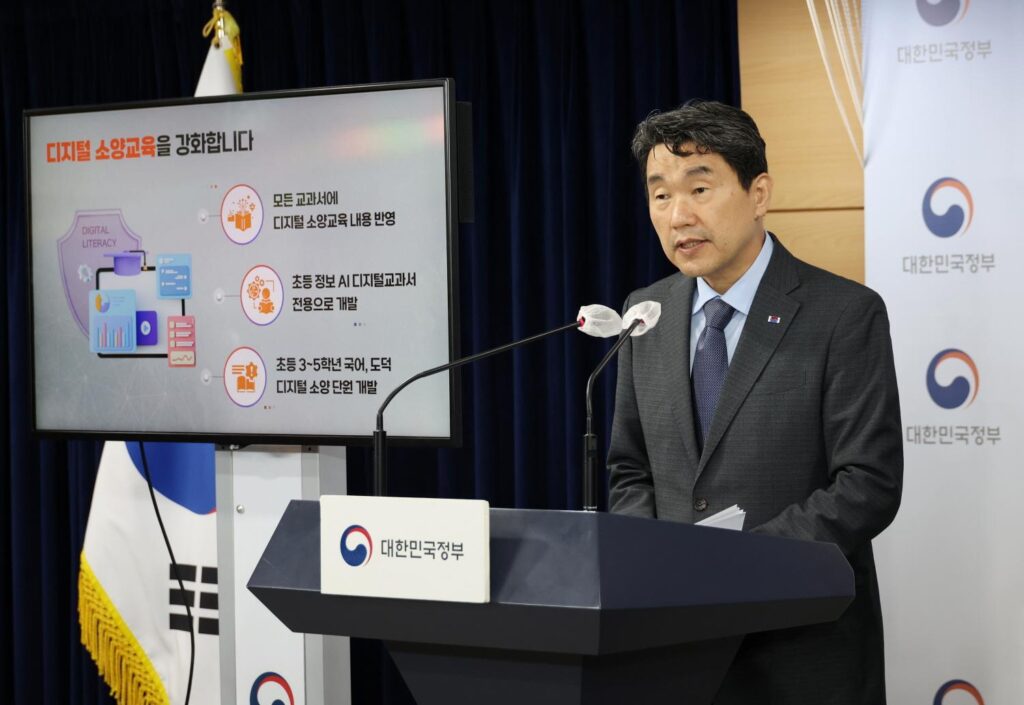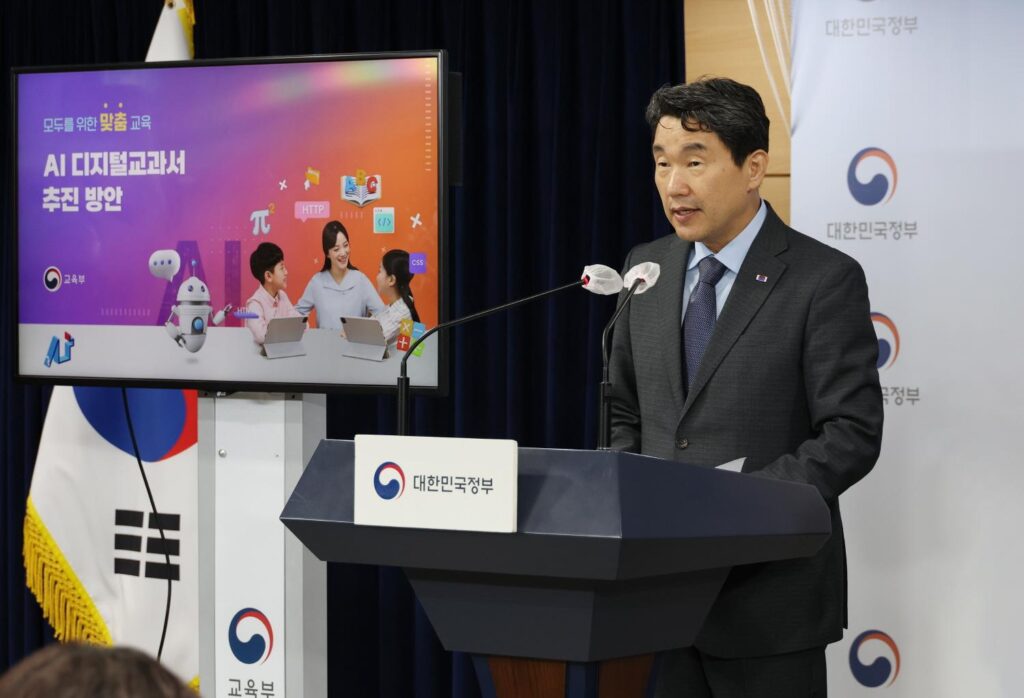Parents push back against the government’s plan to introduce AI-powered textbooks into classrooms, raising concerns about the impact on children’s development.
- AI-Powered Learning: South Korea is set to introduce AI-driven textbooks through tablets by 2024, with full implementation expected by 2028, except for subjects like music, art, and physical education.
- Parental Concerns: Over 50,000 parents have signed a petition expressing worry about the overuse of digital devices, fearing negative effects on brain development, focus, and problem-solving skills.
- Unanswered Questions: The government’s lack of clarity on how AI textbooks will work, along with potential over-reliance on tech in classrooms, has sparked a debate on balancing innovation with student well-being.

As South Korea gears up to introduce AI-powered textbooks in classrooms, the government’s ambitious plan has been met with a wave of skepticism from concerned parents. These AI textbooks, delivered via tablets, are set to revolutionize the classroom by customizing educational content to each student’s learning speed. However, with plans to roll out AI textbooks for all subjects—except for art, music, physical education, and ethics—by 2028, the rapid digital transformation of education has sparked a growing backlash from parents.
AI-Powered Learning: The Future or a Risky Experiment?
At the core of South Korea’s new educational strategy are AI-powered textbooks, which promise to tailor lessons to individual students’ learning styles. Teachers will be equipped with digital dashboards to monitor student progress and adjust the pace as needed. The idea is to create a more efficient, personalized learning experience that keeps students engaged. The transition to these digital textbooks is set to begin in 2024, with plans for full integration over the next four years.
However, the specifics of this transformation remain unclear. How will AI tailor content for different learners? What safeguards will be in place to prevent over-reliance on tech in the classroom? These unanswered questions have caused a growing number of parents to question whether this leap into AI-enhanced education is truly in their children’s best interest.

Parental Concerns: Digital Overload?
In response to the government’s plans, more than 50,000 parents have signed a petition urging officials to rethink their strategy. Many parents fear that the introduction of even more digital devices into their children’s lives could have unintended consequences. They argue that kids are already spending too much time on smartphones and tablets, and more screen time in the classroom could exacerbate issues like decreased attention span, poor problem-solving skills, and potential delays in brain development.
One such parent, Lee Sun-youn, told The Financial Times that she worries about how constant exposure to digital devices could impact her children’s development. Her concerns are echoed by many others who feel that the government’s focus on AI and tech in education overlooks the well-being of students and the potential risks associated with digital saturation.
Balancing Innovation with Well-Being
The South Korean government remains committed to its plan, but the debate over AI-powered textbooks highlights the complex challenge of integrating new technology into education without sacrificing the emotional and cognitive health of students. While AI-driven customization of learning could enhance education for some, critics argue that over-reliance on tech solutions may neglect critical aspects of human development, such as social skills, creativity, and physical well-being.
For now, the government has yet to address many of these concerns in detail, leaving parents and educators uncertain about the impact of this AI textbook revolution. As South Korea pushes ahead, the country may face the challenge of finding a balance between leveraging cutting-edge technology in education and ensuring that students’ holistic development remains a priority.
The Road Ahead
As South Korea embarks on this AI-powered educational journey, the voices of concerned parents remind us that technology in education is not a one-size-fits-all solution. The success of these AI textbooks will depend not only on their ability to personalize learning but also on how well they integrate into an environment that nurtures children’s overall growth. While AI offers exciting possibilities, it is crucial to address the potential risks and ensure that innovation enhances rather than hinders the development of the next generation.
